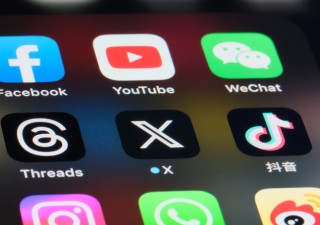Complaints from India prompt Google to remove highest no. of content, mostly for copyright issues
21 September 2021

In its monthly transparency report last month, Google stated it took down an all-time high of 95,680 pieces of content in response to 36,934 complaints from users in India last July.
The transparency report was published in compliance with India’s new IT Rules which came into force on May 26, 2021.
Of the 95,680 Google content removed, 94,862 were due to complaints of copyright infringement.
“Google also mentions in its report that a unique URL identified in a user’s complaint gets treated as one item. So there could be several unique URLs containing different or identical content pieces in a report. For instance, one copyrighted content may be copied 1,000 times and included in different unique URLs and that would get counted as 1,000 infringing content pieces by Google,” explained Aditi Verma Thakur, senior partner at Ediplis Counsels in Bangalore. “Having said that, online piracy in India is rampant because pirates find it easy to amplify their digital content and get traction online by copying others’ copyrighted content.”

India’s new IT Rules require digital platforms and social media intermediaries in the country with more than 5 million users such as Google to release monthly compliance reports indicating complaints received and the corresponding action taken to address such complaints. This requirement aims to generate greater transparency as to the processes implemented by these large entities in India.
“By the introduction of the compliance process, it does not seem that the intention of lawmakers was to check the rate of intellectual property violations. Nonetheless, to a certain extent, the compliance process would lead to awareness indirectly about IP rights and their online enforcement and take down actions by active enforcers and the internet giants respectively,” Thakur said.
Aside from raising awareness, India’s new IT rules also strengthen copyright, and IP protection as a whole as it provides for the liabilities, compliances as well as immunities for intermediaries when IP infringements and other violations occur in their platforms.
“The nature of the Internet is such that identifying an online infringer’s identity and tracking his physical location quickly could be challenging. Additionally, court proceedings can generally be long and extensive for IP right holders in India, unless the reliefs are granted by way of ad-interim injunctions against infringers at the initial stages. These are the practical considerations for the right holders to initiate copyright infringement proceedings before judicial and enforcement authorities against rampant IP violations occurring on social media. In the light of this background, the mechanism for reporting online violations with respective digital platforms and requesting for take down of IP infringing content with them - that has existed under the IT law for a long time now - helps aggrieved right holders take effective and swift action against online violations,” Thakur added.
The rest of the content removed by Google included 807 trademark infringing material and one item relating to counterfeit issues.
Espie Angelica A. de Leon






